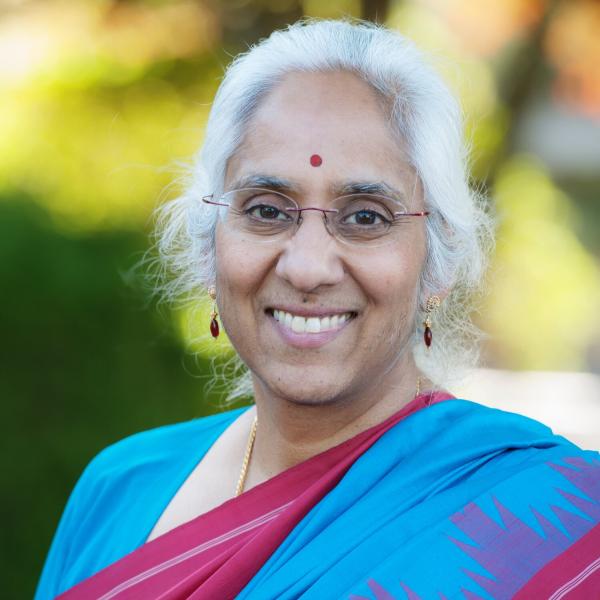Dr. Saraswathi Vedam
Professor, Midwifery, Principal, Birth Place Lab
Cluster Lead
Faculty of Medicine
Saraswathi Vedam is Lead Investigator of the Birth Place Lab and Professor of Midwifery, at University of British Columbia. She has been a clinician and a health professional educator for 35 years. Professor Vedam has successfully coordinated multi-stakeholder and community-led research projects in provincial, national, and international settings. In 2017, she was selected as one of the inaugural Michael Smith Health Research Institute Health Professional Investigators. She is convener and chair of the Global Perinatal Task Force on Quality and Rights in Perinatal Services.
Dr. Vedam has applied her expertise with instrument development and psychometric evaluation to the development of clinical screening tools, MAPi, the Movement and Pulse index to assess fetal well-being, and scales to measure provider attitudes to home birth (PAPHB, PAPHI-i), and autonomy (MADM), respect (MORi), and mistreatment (MIST) during pregnancy and childbirth. She led the multidisciplinary development of the MISS index, an evidence-based composite measure of the integration of midwives into health systems. She also led Delphi teams of multi-disciplinary experts to develop and validate the Birthplace ResQu Index, the first critical appraisal tool for research on safety of birth place; and the Undisturbed Labour and Birth Facility Index, a quality improvement tool to enhance access to physiologic birth and optimal use of Cesarean.
Professor Vedam is currently PI of a CIHR-funded national research project to evaluate respectful maternity care, Research Examining the Stories of Pregnancy and Childbearing Today (RESPCCT). The RESPCCT study used a global Delphi process to develop the first international Registry of validated measures of respectful maternity care. Patient-responsive knowledge translation led to development of an interprofessional online course, Dialogue and Decisions, to teach health professional trainees the process of person-centred decision making, transdisciplinary collaboration, and conflict transformation.
